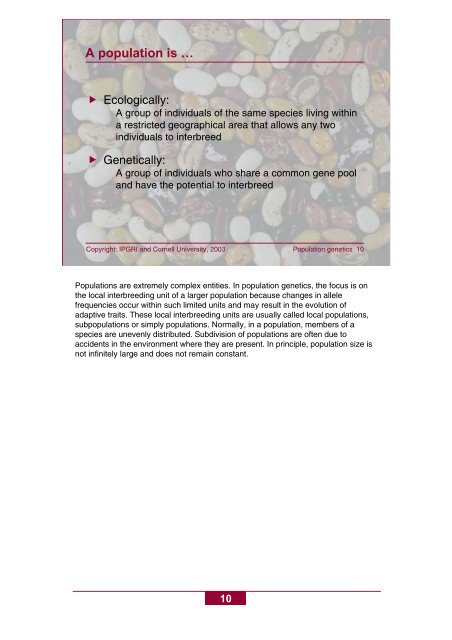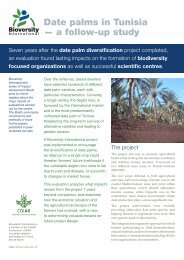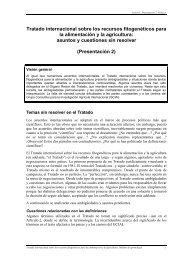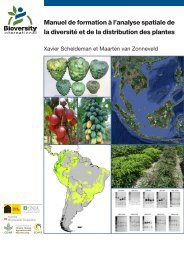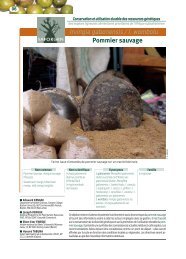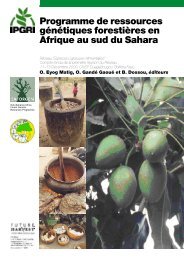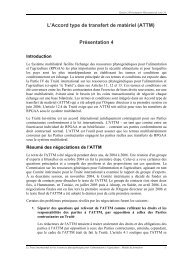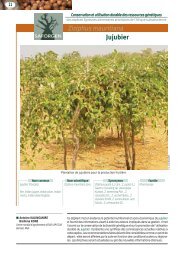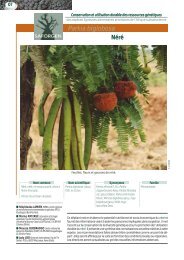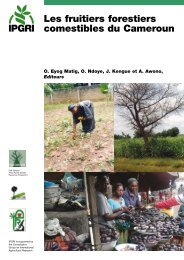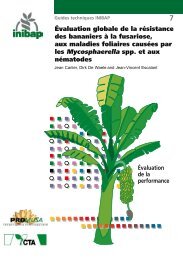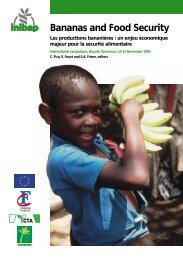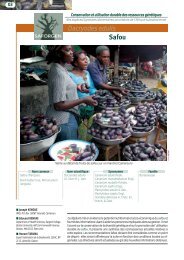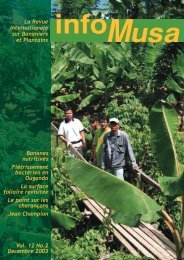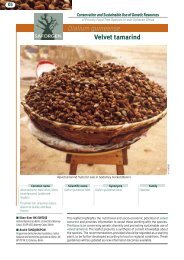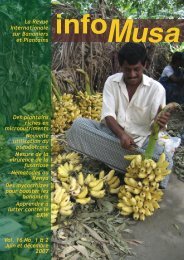Basic concepts of population genetics - Bioversity International
Basic concepts of population genetics - Bioversity International
Basic concepts of population genetics - Bioversity International
You also want an ePaper? Increase the reach of your titles
YUMPU automatically turns print PDFs into web optimized ePapers that Google loves.
A <strong>population</strong> is …<br />
Ecologically:<br />
A group <strong>of</strong> individuals <strong>of</strong> the same species living within<br />
a restricted geographical area that allows any two<br />
individuals to interbreed<br />
Genetically:<br />
A group <strong>of</strong> individuals who share a common gene pool<br />
and have the potential to interbreed<br />
Copyright: IPGRI and Cornell University, 2003 Population <strong>genetics</strong> 10<br />
Populations are extremely complex entities. In <strong>population</strong> <strong>genetics</strong>, the focus is on<br />
the local interbreeding unit <strong>of</strong> a larger <strong>population</strong> because changes in allele<br />
frequencies occur within such limited units and may result in the evolution <strong>of</strong><br />
adaptive traits. These local interbreeding units are usually called local <strong>population</strong>s,<br />
sub<strong>population</strong>s or simply <strong>population</strong>s. Normally, in a <strong>population</strong>, members <strong>of</strong> a<br />
species are unevenly distributed. Subdivision <strong>of</strong> <strong>population</strong>s are <strong>of</strong>ten due to<br />
accidents in the environment where they are present. In principle, <strong>population</strong> size is<br />
not infinitely large and does not remain constant.<br />
10


